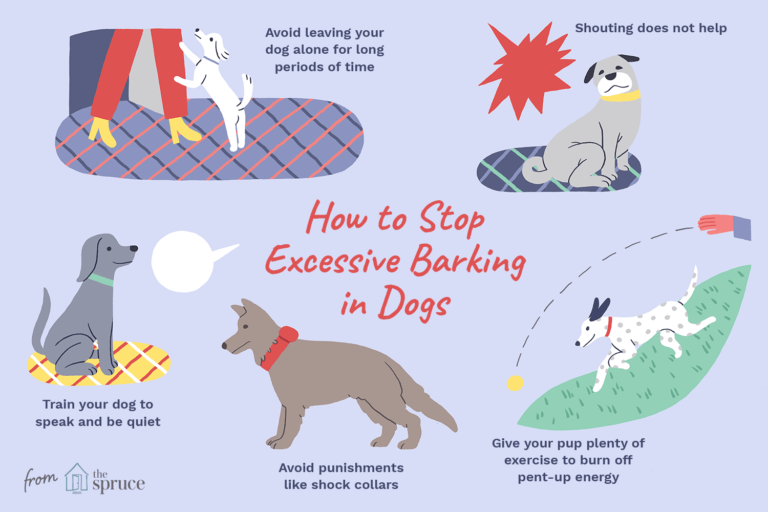Barking is a natural behavior for many dogs. They may bark when the doorbell rings, when the caregiver gets home, or when they see a stranger. It is part of their character and their way of expressing themselves, but excessive barking can be a symptom of a more serious behavioural disorder. Fortunately, there are several techniques that can be used to minimize a dog’s excessive barking.
Demand barking is the easiest type of barking to moderate
The easiest type of barking to moderate is demand barking. This type of
barking occurs when your dog is trying to get your attention. This type of barking can be easily cured if you teach impulse control and ignore the barking. You can also use treats and toys to give your dog a reason to be quiet.
Rewarding your dog when his barking is legitimate

While barking can sometimes be unavoidable, rewarding your dog should not be a regular habit. It may be easier to teach your dog alternatives to barking. For instance, you can teach him to bring you a toy when you call his name. By doing this, you can eliminate the need to punish your dog for barking.
Sometimes, a dog may bark excessively in response to someone entering his territory. This barking can also be a greeting, a way to attract attention, or an attempt to get a treat. This method can be very effective for teaching your dog specific behaviors to a specific group of people.
One important thing to remember when training your dog is that different kinds of barking serve different purposes. While some dogs bark only to get attention, others may bark to get food, attention, play, and walks. Regardless of the cause, it is important to train your dog to stop barking on cue in order to gain your attention.
Eliminating the triggers
Eliminating the triggers of barking dogs is an important first step in treating excessive barking. Your dog may be barking for several reasons, so you need to take a look at all of these factors before you can begin treatment. In many cases, a dog will bark excessively when it is stressed or anxious, and this situation will require a combination of strategies.
There are many reasons why dogs bark, from territoriality to fear. They may also bark for attention. Regardless of the cause, it’s important to address the behavior patiently. If the cause of excessive barking is not obvious, consider changing the environment of the dog’s life.
Changing the environment around your home can also help reduce the frequency of barking. You can change the sounds and smells that the dog associates with these triggers. For example, if you hear a lot of traffic, you might want to try putting a stop sign in front of the street. This way, your dog will be more likely to respond with quiet behavior.
Training your dog to be quiet on cue
If you want your dog to be quiet on cue when you call him/her, you must begin by addressing the problem at the source. For instance, if you have a doorbell in your home, it is important to train your dog to wait for the bell before barking. This will reduce the intensity of the barking episodes. As your dog becomes accustomed to the quiet cue, you can shorten the duration of the quiet command.
Once you have taught your dog to stay quiet on cue, the next step is to reward him/her for being quiet. Give him/her a treat every time it stops barking. Repeat the process until your dog gets used to the quiet cue. Make sure to reward your dog only when the behavior is consistent and after it has been quiet for at least five seconds.
Remember that barking dogs have different functions. They may bark for food, attention, play, walks, or other things. Therefore, you should not only train your dog to be quiet on cue, but also teach him other behaviors as well. You can do this by using various techniques that may be helpful for you.








